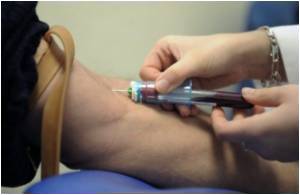
Nielsen presented the results at the Fourth AACR International Conference on Molecular Diagnostics in Cancer Therapeutic Development, held here.
"We envision that this type of miRNA profile, once developed and marketed as a screening kit, can be used to screen entire populations in order to facilitate a focused selection of individuals who should undergo colonoscopy," Nielsen said.
Colorectal cancer is the second leading cause of cancer-related deaths in the western world. If diagnosed early, the disease can usually be cured with surgery; however, the prognosis for late-stage cancer is grim. Although several early-detection screening methods are available, "current estimates suggest that less than half of Americans over the age of 50 receive adequate colorectal cancer screening," Nielsen said.
Nielsen's team developed a state of the art screening method based on the miRCURY LNA™ Universal RT microRNA PCR. With it, they profiled blood plasma samples collected from patients with early, resectable (Stage II) colorectal cancer and sex- and age-matched healthy volunteers.
The findings suggested that it is possible to distinguish early-stage colorectal cancer from healthy subjects with good sensitivity and specificity from a single plasma sample — less than 1 mL of blood. Nielsen and colleagues are starting a large, prospective clinical trial in symptomatic individuals undergoing colonoscopy to prospectively validate their screening test.
Advertisement
Advertisement















